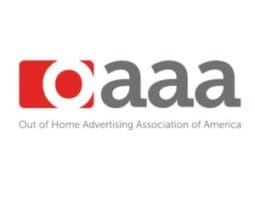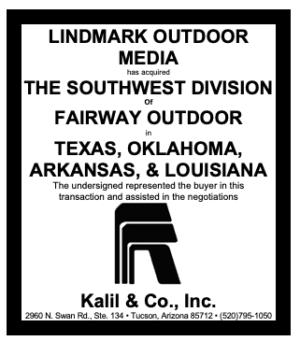Expect three “more” trends: more legal cannabis, more demand for cannabis advertising, and more debate.
Here are highlights of OAAA’s June 17 webinar:
- Revenue-hungry state and local governments are collecting millions in taxes and fees.
Cannabis is legal (in some form) in 33 states; legalization measures will be on the 2020 ballot in Mississippi, New Jersey, South Dakota, and perhaps more states.

This chart shows the upward tax-revenue trend in eight states with legal recreational sales: (calculated by the Institute on Taxation and Economic Policy).

Forty-three percent of cannabis ad spending goes to out of home media (Kantar media tracking, through the first four months of 2020).
This trend will continue in the near term because other media shy away from advertising cannabis, which remains illegal at the federal level. Broadcast outlets are licensed by the Federal Communications Commission (FCC).
In 2020, Oklahoma and Washington State considered banning cannabis ads on billboards; ban proposals were not enacted in either state.
Similar legislation is pending in Massachusetts.
Out of home media company managers in Oklahoma and Washington State said lawmakers and staff are interested in public opinion, how other states regulate cannabis advertising, and reasonable restraints against excess.
Cannabis is considered essential
Cultivation, processing, and sale of cannabis were deemed essential business activities in multiple State stay-home orders intended to reduce spread of coronavirus. These official designations, for medical and recreational marijuana, validate cannabis as a mainstream commodity and business.

What does the cannabis industry want?
The pot industry wants federal banking reform so cannabis enterprises can access interstate financial services. The industry also says marijuana businesses should qualify for federal stimulus relief (they do not, because marijuana is a controlled substance at the federal level).
What ad claims trigger enforcement?
The Federal Trade Commission and Food & Drug Administration launched enforcement actions against CBD (cannabidiol) health claims.
Massachusetts and North Carolina sued vaping companies allegedly marketing to youth.
To stay out of trouble, said Kerry Yoakum of OAAA, advertisers should avoid unsupported health claims and marketing cannabis products to under-age audiences.
[wpforms id=”9787″]
Paid Advertisement


















